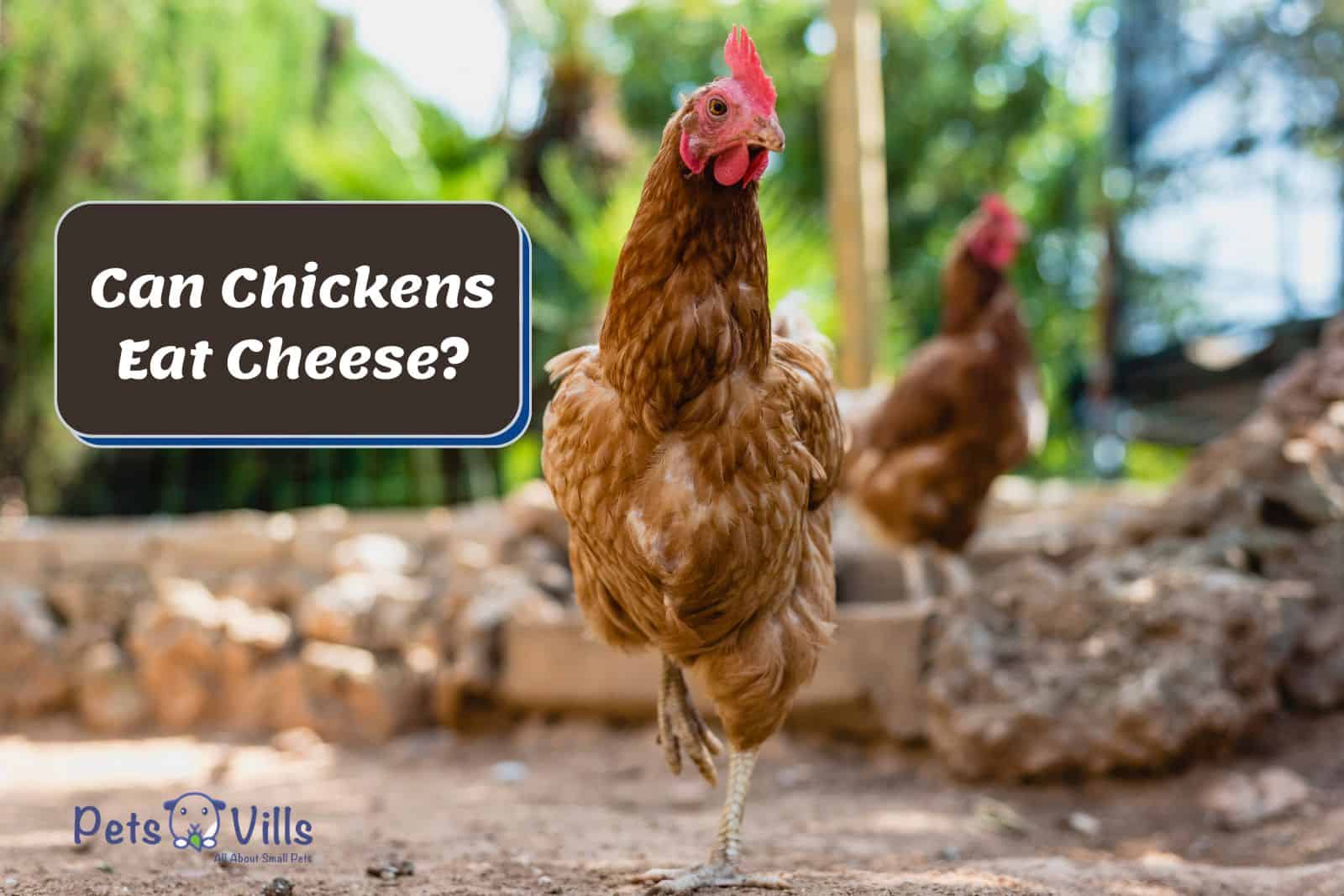Cheese is versatile and a popular food used for many things. But is it versatile enough to be an option for chickens? It’s a question that has often popped into my head.
So can chickens eat cheese? According to my extensive research, chickens can eat cheese. In fact, it’s packed with nutrients like calcium to help them grow strong (1).
However, there’s more to discuss before feeding your chickens cheese.
But if you read on, I’ll ensure you know whether cheese suits your chickens.
Table of Contents
Key Takeaways
- Cheese can be a safe food item for chickens. But you must offer them small amounts due to cheese’s high-fat content.
- Limited amounts of cheese in a chicken’s diet provide a few health benefits. It’ll help strengthen muscles/bones and provide vital fats during winter.
- Sliced goat cheese would be your best option when it comes to types. It’s easier for chickens to digest while having lower lactose and sodium levels.
Is It Safe For Chickens To Eat Cheese?
Cheese is a safe food item for chickens to eat in small quantities. It earns this distinction by not containing any toxins or harmful substances.
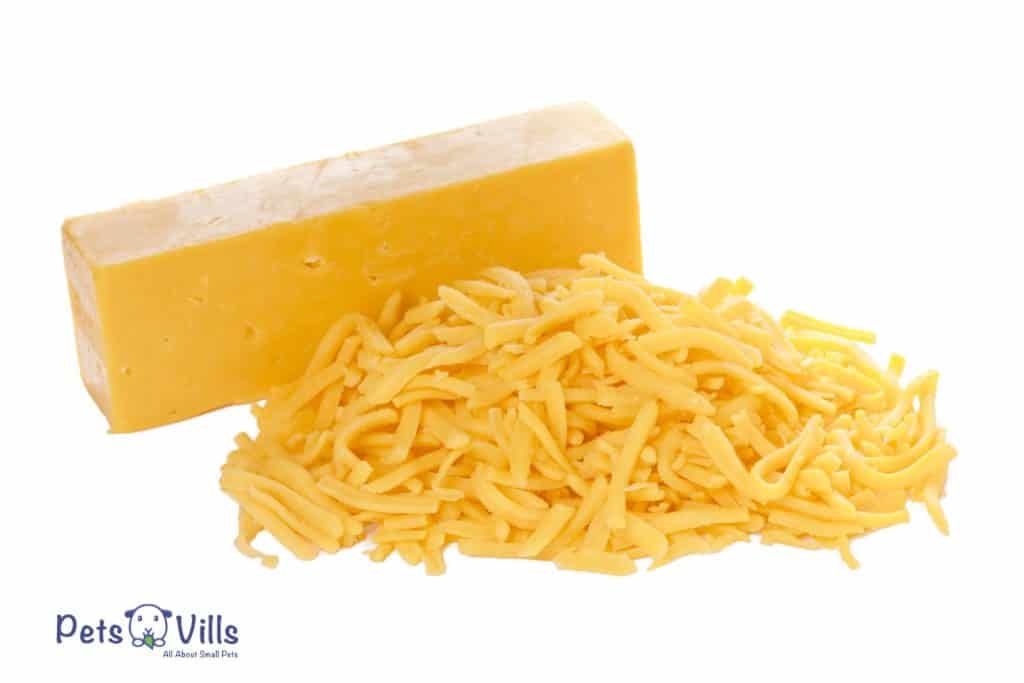
But I do have to warn you about giving your chickens too much cheese. After all, cheese is loaded with fats and could cause the chickens to become overweight.
The high-fat content is also difficult on their digestive tract and system. So large quantities of cheese become tough for chickens to digest.
These reasons are why cheese and other dairy products aren’t everyday food for chickens. I didn’t even mention they contain sugar in the form of lactose.
Why is this a big deal? Chickens don’t have the enzyme to digest this sugar properly.
Therefore, digesting large quantities can result in digestive problems. It usually manifests in either diarrhea or abdominal pain.
Neither symptom is one a poultry owner wants for their chickens. It’s why I recommend only using cheese in moderation.
Health Benefits of Cheese for Chickens
So you now know how to use cheese with chickens safely. But does anything come from placing a tiny bit of it into their diets?
The first thing to understand is that cheese is a healthy and excellent nutrient source. It can provide a long list of benefits when used in moderation.
Below I’ve dived into a couple of these health benefits. These discussions will better explain whether cheese is a worthwhile treat for your chickens.
#1 Promotes Muscle Development
One of the cheese’s primary characteristics is being an excellent protein source. Due to this, it’s known for its ability to promote muscle development.
In other words, cheese can help build, repair, and strengthen chicken muscles. It’ll be handy in their daily activities, like moving around the chicken coop.
Your chickens will also need this extra boost. For instance, it’s not uncommon for them to tear muscles when foraging. So a food with high protein content like cheese helps.
#2 Improves Bone Health
Cheese is a high-valued calcium and vitamin source that “aid in bone development in both humans and chickens” (2). It’ll keep their bones strong rather than weak or brittle.
It ends up being another way to protect them from becoming hurt. You’ll be surprised by how much a steady source of calcium can limit broken bones or similar issues.
I’ve seen less since incorporating calcium-rich food into my flock’s diet. It has made my life as a poultry owner more stress-free and peaceful.
#3 High-Fat Content
This last benefit is a complex one. After all, cheese’s high-fat content is likely first on why you shouldn’t give it to chickens.
But this high-fat content can be helpful when managed correctly. For example, chickens need fatty foods to keep them warm during winter.
These fatty foods will help build up their fat reserve. In doing so, the colder months become much easier for them to survive.
But please, don’t only feed them only high-fat items like cheese during the winter. Your chickens still need their traditional diet to get their necessary nutrition.
As a result, consider high-fat content items as a supplement or treat. They shouldn’t ever be a long-term dietary staple.
What Type Of Cheese To Feed Chickens?
Another who considers themselves a fan of cheese is aware of the variety. There’s a ton of available cheese available for us to purchase.
In most cases, this cheese will come from cows. But there are better options than this type of cheese for chickens.
Instead, chickens do much better with goat cheese (4). It’s a more suitable cheese because it has less lactose and sodium.
You can also rest easy knowing the fat content in goat cheese is much lower. I certainly feel much better when giving it to my chickens rather than other cheese.
Shredded Cheese Or Block Cheese?
Shredded goat cheese is a much better option than block goat cheese. It’s easier to digest and pick up for our feathered friends.
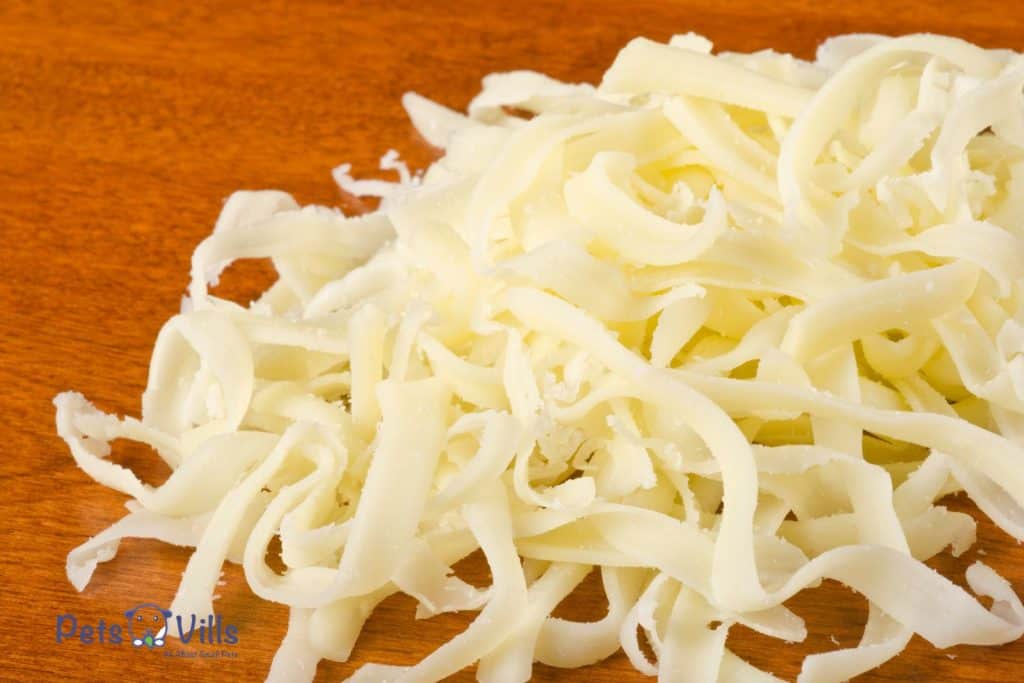
On the other hand, block cheese is often too tough for chickens to eat. One way to overcome this issue is using a softer cheese like mozzarella.
But again, mozzarella provides all the issues that come with non-goat cheese. So you’ll need to decide if it’s worth it.
In my case, I’ll stick with my shredded goat cheese. My flock of chickens enjoys its taste and love when I give it to them.
Can Chickens Eat Moldy Cheese?
Moldy cheese is a suitable treat for chickens. Some experts even recommend moldy cheese/blue cheese due to its antibacterial properties (3).
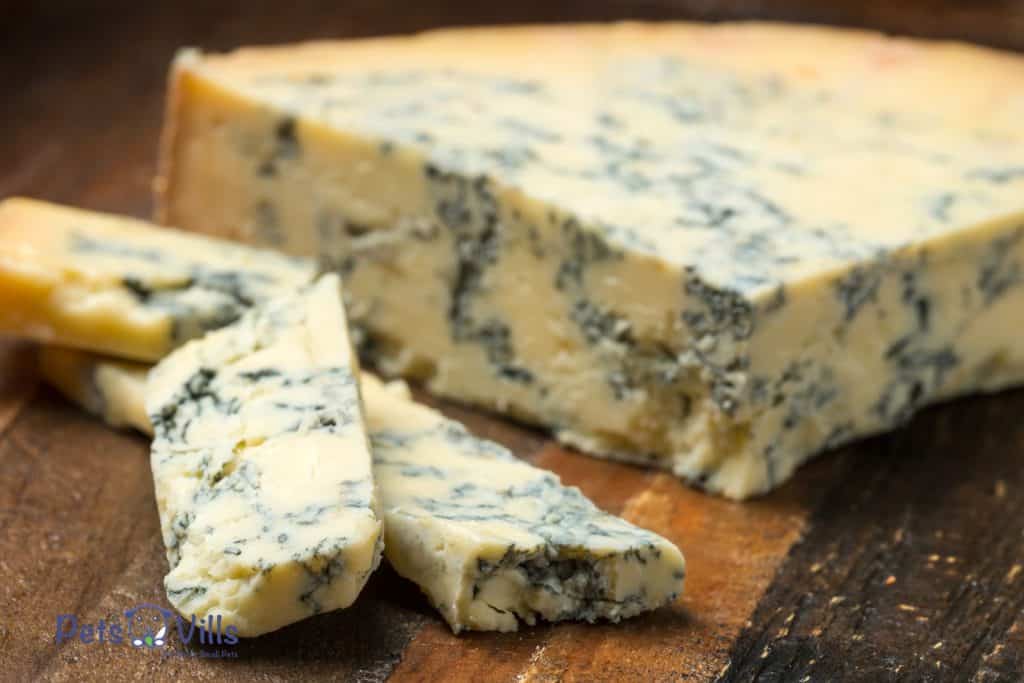
It’s a valuable attribute because it helps strengthen a chicken’s immune system. Plus, it’ll increase their immunity to ensure further they remain healthy.
So if you have any blue cheese, don’t hesitate to mix it into the daily feed. It may be the very thing capable of helping your flock to fight against an illness.
How To Feed Cheese To Chickens
You have a few methods to choose from when feeding cheese to chickens. Below I’ll walk you through some of my favorites!
#1 Feeding Chickens Whole Block Of Cheese
Generally, I wouldn’t advise feeding a cheese block to chickens. It can be difficult for them to eat.
But it can help keep your chickens occupied for an extended period. They look at the block of cheese as a challenge and keep pecking at it for hours.
If you use a block cheese, ensure it’s one of the soft cheeses. Some of my recommended options would be goat cheese, cheddar cheese, and mozzarella cheese.
I’ve had success with all these types of cheese, especially goat cheese. I can’t believe how my chickens seem to adore it.
#2 Feeding Chickens Cut or Sliced Cheese
Feeding chickens cut or sliced cheese has always been my preferred method. It’s not much of a debate considering the item is already in small pieces of cheese.
As a result, it becomes much easier for chickens to eat. Baby chicks and juvenile chickens don’t even have trouble with it, especially compared to block cheeses.
Most types of sliced cheeses will be more than satisfactory. But if you can stick with goat cheese to avoid the problematic lactose issue that plagues other cheese forms.
#3 Mixing Cheese With Chicken Feeds
Some poultry owners mix the cheese into the daily feed. It’s a clever way to boost your chicken’s meal with additional nutrition.
It also helps that most chickens will be okay with the addition because they like cheese. But there’s a little preparation needed before mixing it into the regular feed.
Start by cutting the cheese into smaller pieces. Try to cut the cheese to about the size of their feed.
Once it’s mixed, add it to their feeding bowl and feed it to the chickens. Your flock will then have the time of their lives eating their daily feed.
How Much Cheese To Feed Chickens
Due to their high-fat content, cheese should be fed to chickens occasionally. Feeding them too much cheese could cause health complications.
The health issues are only one reason cheese is only an occasional treat for chickens. There aren’t enough nutrients in cheese to be a primary staple of their regular diet.
Cheese and other supplement treats should only make up 10% or less of a chicken’s diet. The leftover 90% needs to come from a high-quality commercial feed.
Otherwise, you’re relying on foods that provide only some necessary nutrients. It’s not an intelligent way to go about raising your flock.
You’re much better off relying on commercial feeds to offer this nutrition. After all, they’re formulated for this exact purpose.
So overall, cheese should be given to them as tasty treats for chickens. It will make a great supplement to their leading food, especially as a source of protein and calcium.
Other Dairy Products For Chickens
A few other dairy products can be a suitable treat for chickens. Let’s discuss them to see if they’d fit your preferences better than cheese.
#1 Milk
Milk is a dairy product that’s safe for chickens to drink. It has about 90% water content, so it should be easy for them to digest small amounts of milk.
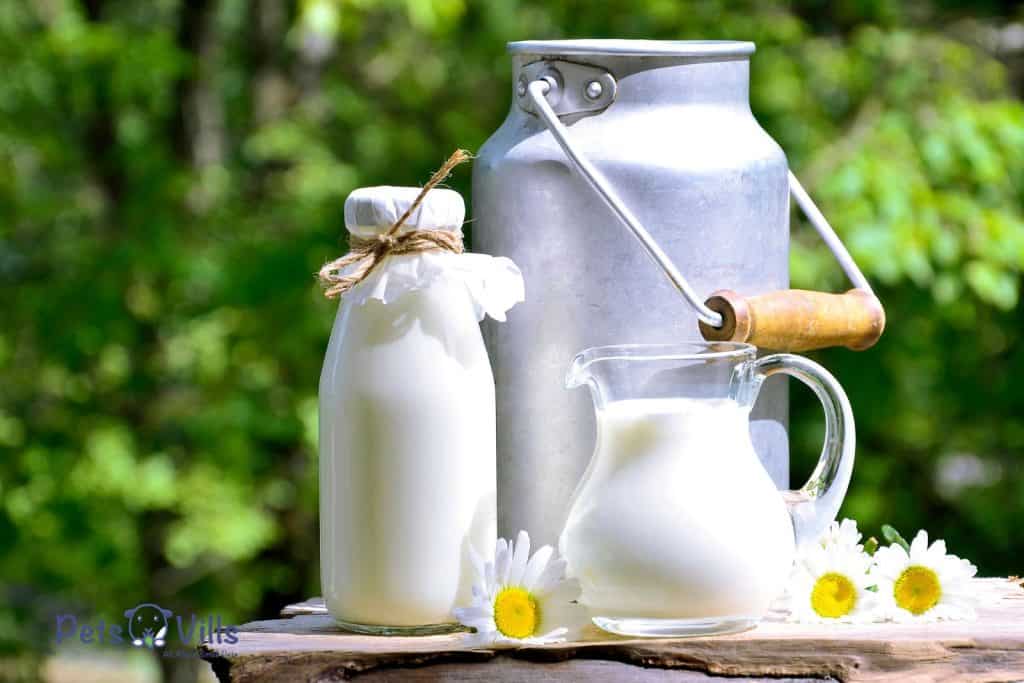
There are many different types of milk on the market. As with cheese, goat milk is better suited for chickens than cow milk.
It boils down to goat milk offering less fat and doesn’t contain too much sugar. Another choice is skimmed low-fat milk with its low-fat content.
#2 Yogurt
An unlikely dairy alternative to cheese is yogurt. But in some ways, it’s even better since yogurt has a bacteria content that most kinds of milk and cheeses don’t offer.
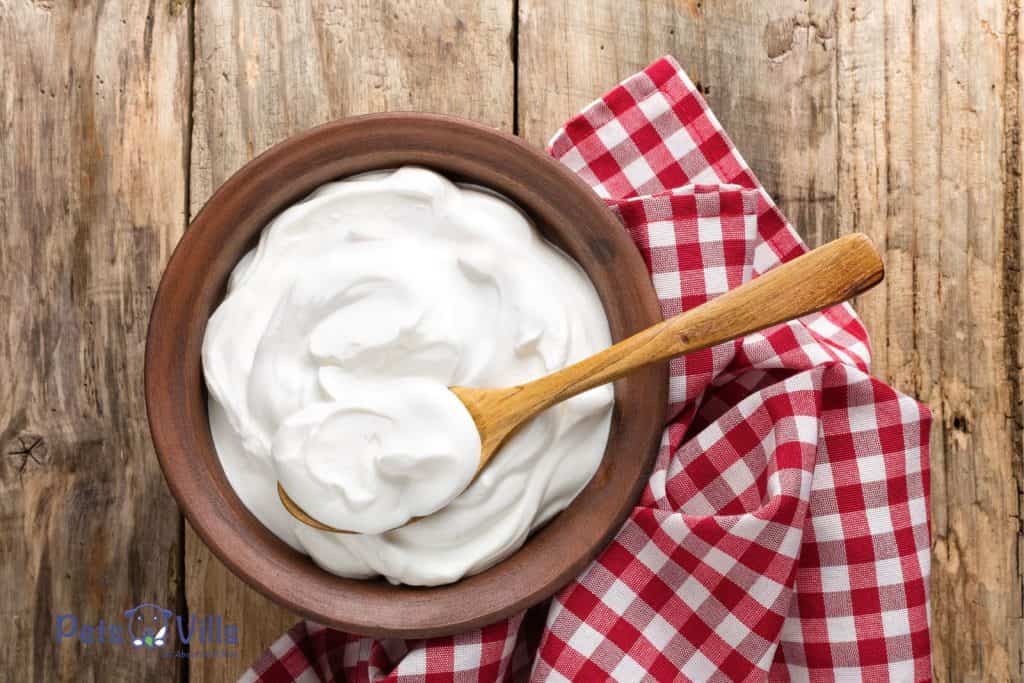
This beneficial bacteria content can help your chickens with any digestive issues. It’s been a godsend on several occasions for my flock.
However, there are a few rules to follow before giving them yogurt. It must be plain and sweetened to avoid any issues.
My preferred option would be Greek plain yogurt. It has a much lower sugar content than your traditional yogurt while providing all the benefits.
You’ll be amazed by my captivating articles on “Can Chickens Eat Dragon Fruit Skin?” and “Do Chickens Eat Dandelions?”—don’t forget to give them a clucky read!
FAQs
#1 Is dairy okay for chickens?
Dairy is okay for chickens in limited amounts. But larger amounts can cause heap issues within their digestive system, such as diarrhea or constipation.
#2 Can chickens eat brie cheese?
Brie cheese is on the list of safest cheeses for chickens to eat. It’s an excellent source of vitamins, calcium, and other valuable nutrients.
Conclusion
Can chickens eat cheese? There are more convenient food items for chickens. But if used correctly, cheese is a safe and beneficial food for chickens.
But ensure it’s a soft type like goat cheese to get the most benefits. This cheese type suits a chicken’s digestive tract and system better!
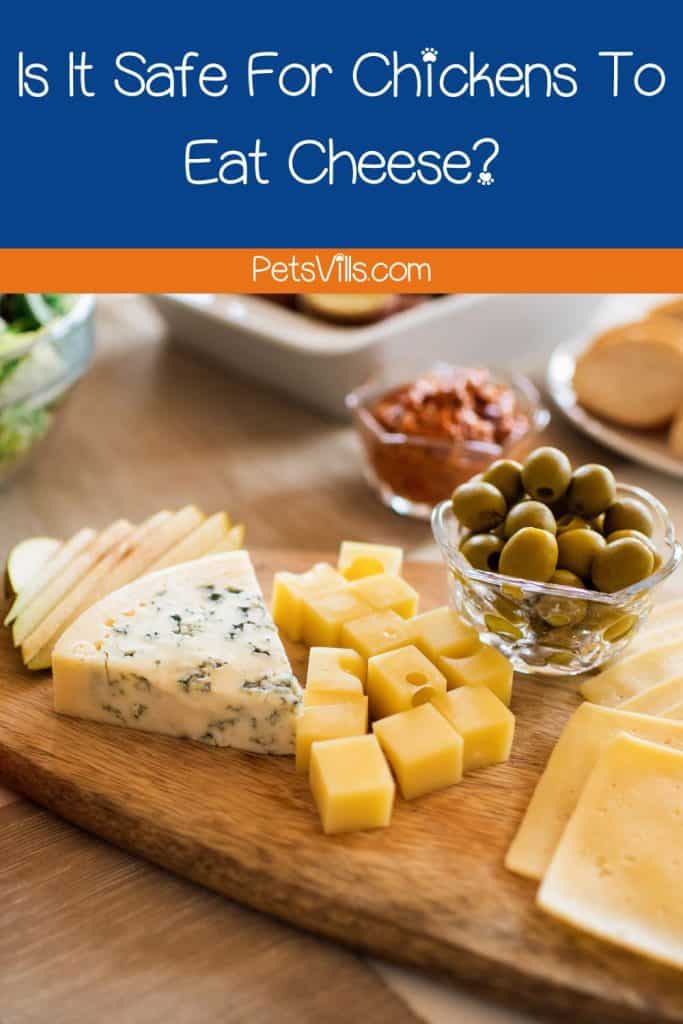
Resources
1. Boston 677 HA, Ma 02115 +1495‑1000. Cheese [Internet]. The Nutrition Source. 2020. Available from: https://www.hsph.harvard.edu/nutritionsource/cheese/
2. Fleming RH. Nutritional factors affecting poultry bone health. Proceedings of the Nutrition Society [Internet]. 2008 [cited 2020 Jan 6];67:177–83. Available from: https://www.cambridge.org/core/journals/proceedings-of-the-nutrition-society/article/nutritional-factors-affecting-poultry-bone-health/E4B6A59BBE7CBB279C0457159682DD41
3. Lavoie ET. Avian immunosenescence. AGE. 2005;27:281–5.
4. FoodData Central [Internet]. fdc.nal.usda.gov. [cited 2023 Feb 15]. Available from: https://fdc.nal.usda.gov/fdc-app.html#/food-details/173435/nutrients

Andreea is a very passionate content creator and her purpose is to provide you with the most interesting articles, while constantly discovering new facts. She’s been freelance writing for the past five years and has created numerous articles and educational materials while managing her own mom blog.
Read her Latest Articles
Find her on
FACEBOOK AND Instagram

